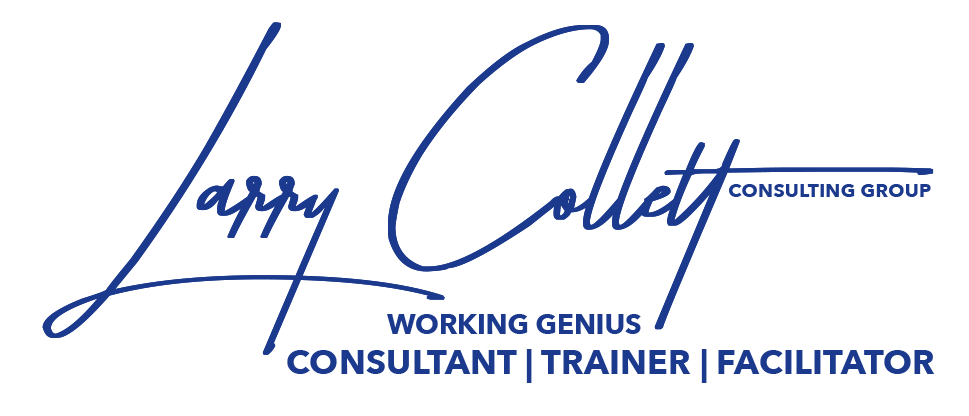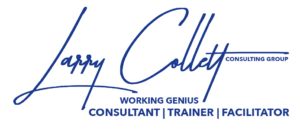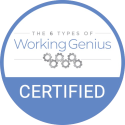The Power of Working Genius in Team Dynamics
Enhancing Team Performance
Understanding the six key working genius types can significantly enhance team performance. By recognizing and leveraging each team member’s unique strengths and preferences, teams can achieve a better alignment of tasks and responsibilities. This alignment leads to increased productivity, better decision-making, and a more cohesive work environment.
Promoting Effective Communication
The working genius framework also promotes effective communication within teams. When team members are aware of their own working genius types and those of their colleagues, they can tailor their communication styles to be more impactful. This leads to clearer exchanges of information, increased collaboration, and a reduction in misunderstandings and conflicts.
Fostering Innovation and Creativity
Another notable benefit of understanding the working genius types in team dynamics is the fostering of innovation and creativity. By acknowledging the diverse strengths and approaches of team members, teams can generate a wider range of ideas and solutions. This diversity of thought can spark creativity, drive innovation, and lead to breakthrough outcomes that might not have been possible otherwise.
Understanding the 6 Types of Working Genius
Discovering the Key Working Genius Types
There are six key Working Genius types that can help individuals and teams unleash their full potential. These types encompass different strengths and capabilities that are essential for effective teamwork and productivity.
Identifying Your Personal Working Genius
By understanding and identifying your personal Working Genius type, you can leverage your unique strengths to excel in your role and contribute meaningfully to team projects. Recognizing your inherent talents allows you to focus on tasks that align with your abilities.
Leveraging Team Diversity
Each team member possesses a specific Working Genius type, and by recognizing and valuing the diversity within the team, organizations can create a dynamic environment where different strengths complement each other. Leveraging this diversity leads to more innovative solutions and enhanced team performance.
Identifying and Leveraging Individual Strengths
Recognizing Unique Skills and Talents
One crucial aspect of unlocking a team’s potential is identifying and recognizing the unique skills and talents that each team member brings to the table. By acknowledging and appreciating individual strengths, teams can better leverage these talents towards achieving common goals.
Empowering Team Members
Empowering team members to utilize their strengths involves providing them with the resources, support, and opportunities to excel in their areas of expertise. When individuals feel empowered to contribute and showcase their skills, they are more likely to be engaged and motivated towards achieving shared objectives.
Encouraging Collaboration and Synergy
While recognizing individual strengths is essential, fostering collaboration and synergy among team members is equally important. Encouraging individuals to work together, complement each other’s strengths, and communicate effectively can lead to innovative solutions and improved team performance. By creating an environment where diverse strengths are valued and integrated, teams can unlock their full potential and achieve greater success.
Fostering Collaboration and Synergy
Building Strong Connections
Fostering collaboration and synergy within a team begins with building strong connections between team members. When team members feel connected to one another on a personal level, they are more likely to communicate openly, share ideas, and work together effectively towards common goals. Leaders can facilitate this by encouraging team building activities, creating opportunities for social interaction, and promoting a culture of inclusivity and respect.
Encouraging Open Communication
Open communication is a cornerstone of successful collaboration. Creating an environment where team members feel comfortable sharing their thoughts, concerns, and feedback is essential for fostering synergy within a team. Leaders can encourage open communication by actively listening to team members, providing opportunities for feedback, and fostering a culture of transparency and trust. When team members feel heard and valued, they are more likely to collaborate effectively and contribute to the team’s success.
Celebrating Diversity and Strengths
Every team member brings a unique set of skills, experiences, and perspectives to the table. Celebrating this diversity and recognizing each team member’s strengths is crucial for fostering collaboration and synergy. Leaders can encourage team members to embrace their differences, leverage their individual strengths, and work together to create innovative solutions. By valuing and celebrating diversity, teams can tap into the full potential of their members and achieve greater success together.
Maximizing Team Performance through Working Genius
Enhancing Team Collaboration
Maximizing team performance through Working Genius involves understanding each team member’s unique strengths and weaknesses. By recognizing and leveraging these Working Genius types within the team, leaders can strategically assign tasks that align with individual strengths, leading to increased productivity and collaboration.
Fostering a Positive Team Culture
Building a strong team culture is essential for team success. By incorporating Working Genius principles into team dynamics, leaders can create an environment where team members feel valued, understood, and supported. This fosters a sense of belonging and encourages open communication and idea sharing among team members.
Driving Innovation and Creativity
When team members are empowered to work within their Working Genius types, they are more likely to tap into their creativity and innovation. By encouraging team members to think outside the box and pursue new ideas, leaders can drive innovation within the team, leading to groundbreaking solutions and outcomes.


